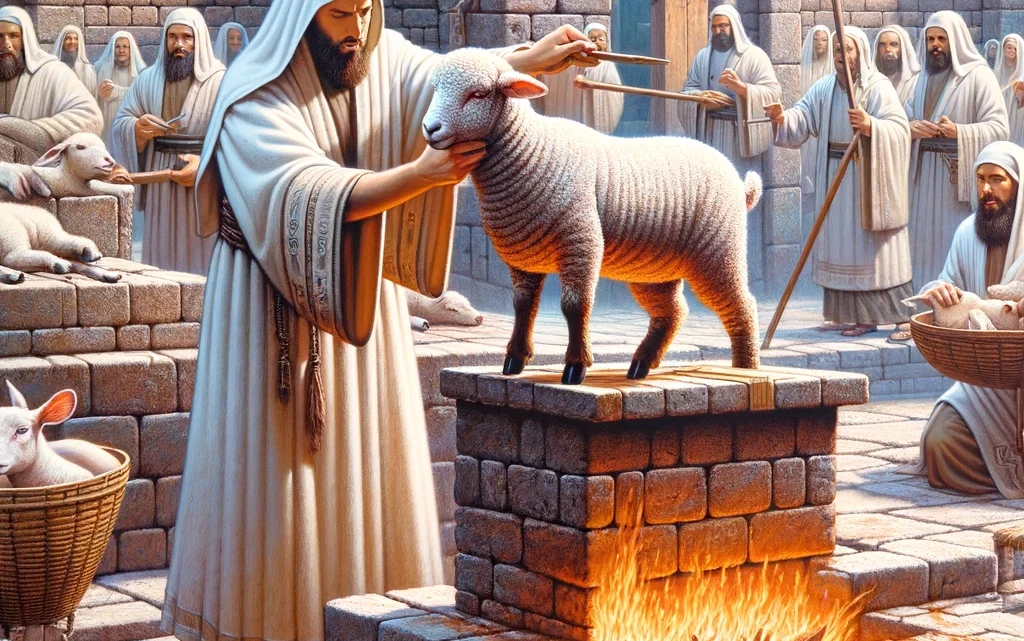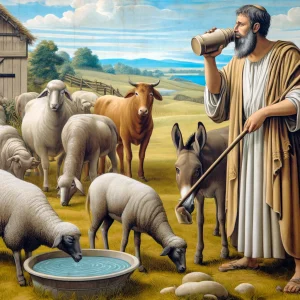“Caring for Creation: The Ethical Treatment of Animals in Biblical Law”


Introduction
The Bible contains various laws and teachings regarding the treatment of animals, emphasizing that they are part of God’s creation and should be cared for with respect and compassion. This post explores the biblical perspective on animals, focusing on the ethical guidelines provided in the Old Testament and their implications for modern discussions on animal welfare and rights.
Animals in the Creation Narrative
• Genesis 1:24-25: In the creation story, God made animals along with other living creatures and declared them good. This foundational narrative establishes that animals are part of God’s creation and have inherent value. They were created with a purpose and are not merely resources to be exploited.
• Genesis 2:19-20: Adam’s role in naming the animals signifies humanity’s responsibility to care for and oversee them. This aspect of the creation story suggests that animals are part of the order God intended, and humans have a duty to respect and manage them responsibly.The Ethical Treatment of Animals in Mosaic Law
• Exodus 23:12: This law mandates rest for animals on the Sabbath, emphasizing that even beasts of burden deserve a day of rest. This command underscores the importance of acknowledging the needs of animals and not overworking them.
• Deuteronomy 22:6-7: This law states that if a bird’s nest is found with young ones or eggs, the mother bird should be allowed to go free. This command shows sensitivity toward animal welfare, ensuring that their natural life cycles are respected.
• Proverbs 12:10: This proverb states, “A righteous man regardeth the life of his beast.” This teaching implies that ethical treatment of animals is a sign of righteousness and compassion, suggesting that those who are cruel to animals lack moral integrity.Animal Sacrifices and Compassion
• Leviticus 22:28: This law prohibits killing both a mother and her offspring on the same day, indicating a level of compassion in the practice of animal sacrifice. Although animal sacrifices were part of the Mosaic Law, guidelines like this show that even in sacrificial contexts, there were considerations for animal welfare.
• Isaiah 11:6-9: This prophetic vision of a peaceful kingdom where “the wolf shall dwell with the lamb” reflects a future where harmony exists among all living creatures. This idealized vision underscores the ultimate goal of peace and respect among God’s creation.Implications for Today
The ethical treatment of animals in the Bible has significant implications for contemporary discussions about animal welfare and rights. These teachings remind us that animals are part of God’s creation and deserve care and respect. They challenge us to consider our responsibility towards animals in modern contexts, such as farming, animal testing, and pet ownership.
Conclusion
The Bible’s approach to animals reveals a deep sense of respect and compassion for all living creatures. Through various laws and teachings, we see that ethical treatment of animals is not a modern concept but an ancient principle embedded in biblical tradition. As we navigate contemporary issues related to animal welfare, these biblical insights can guide us toward a more compassionate and responsible relationship with the animal kingdom.

